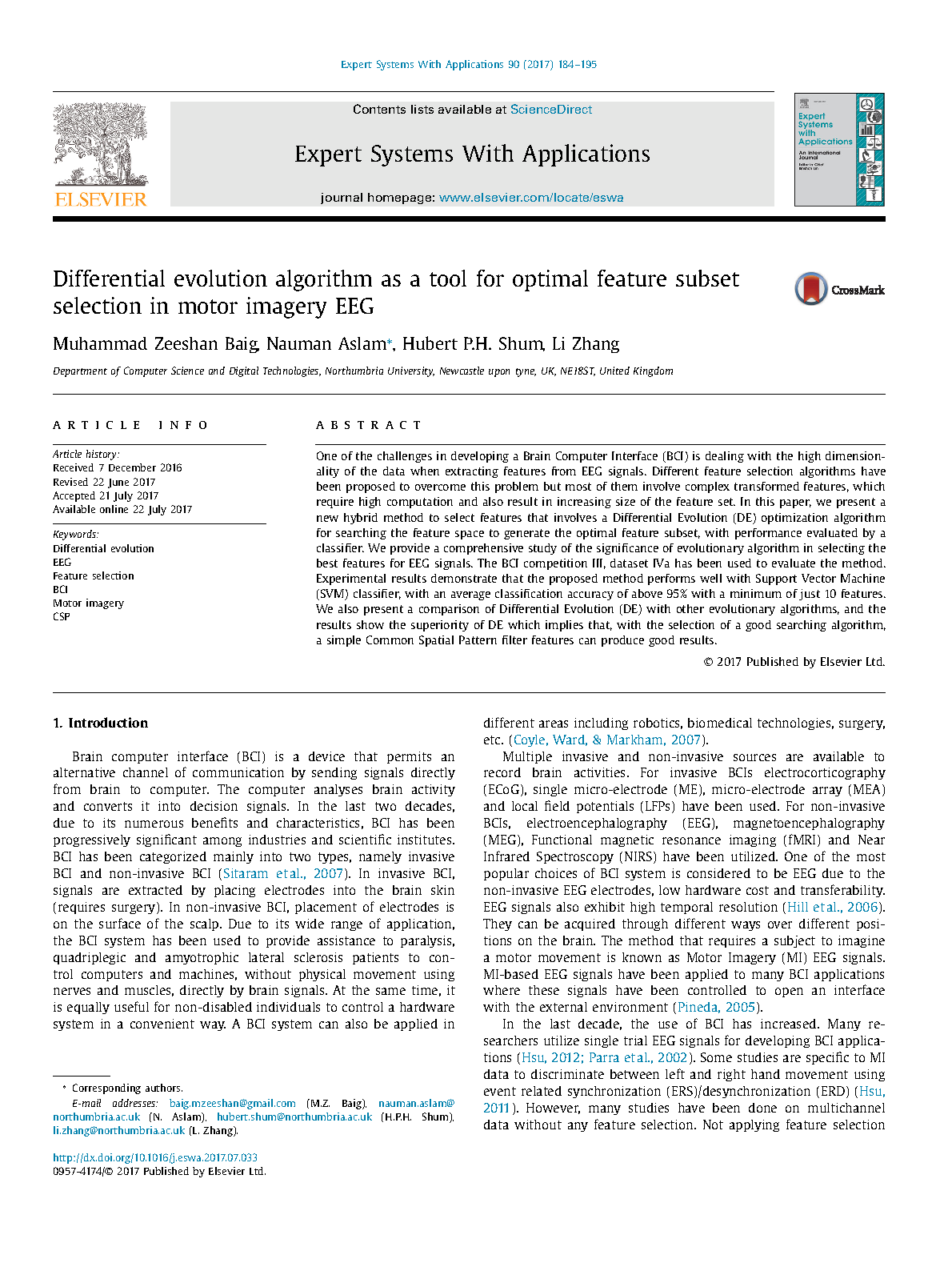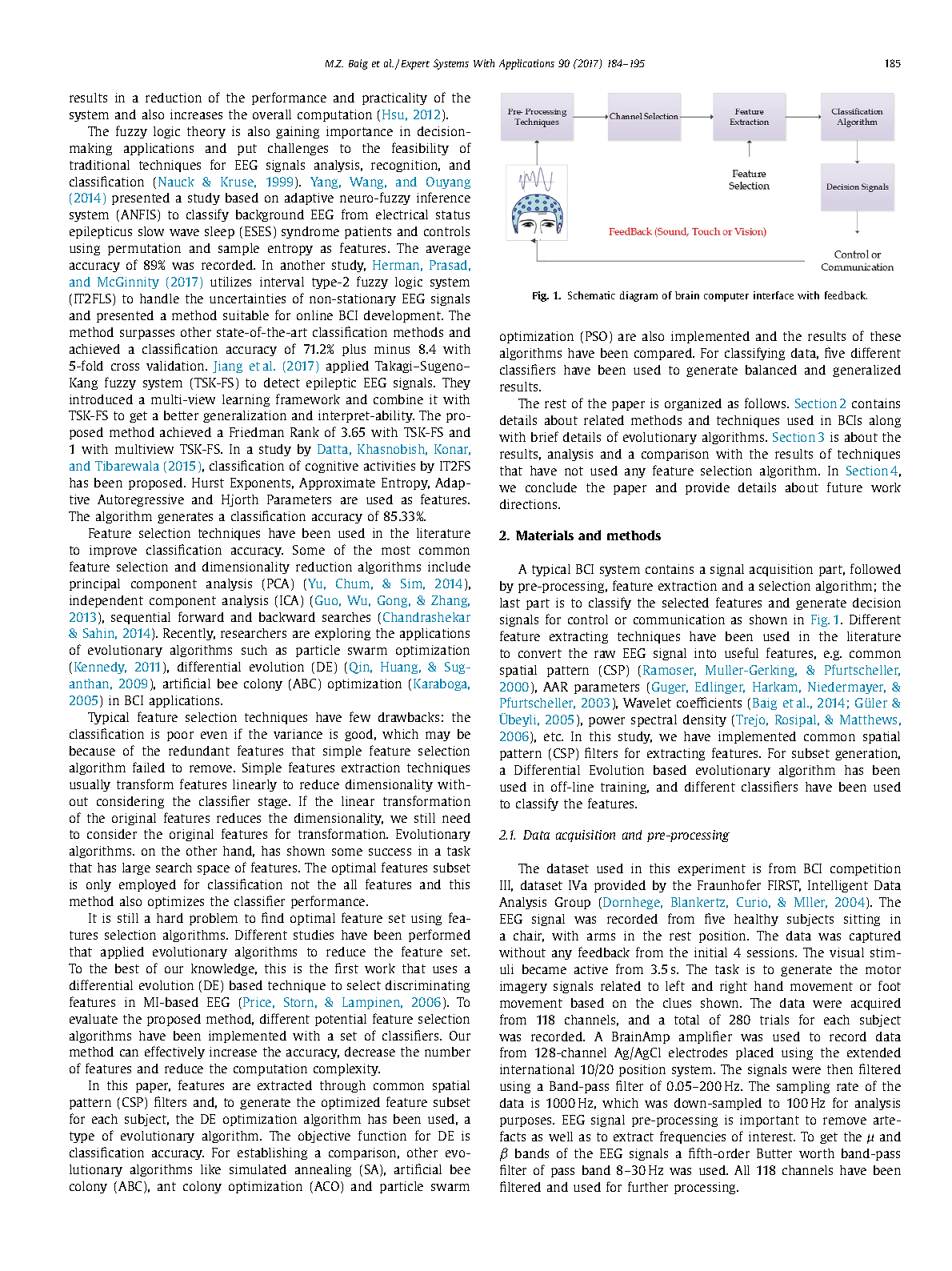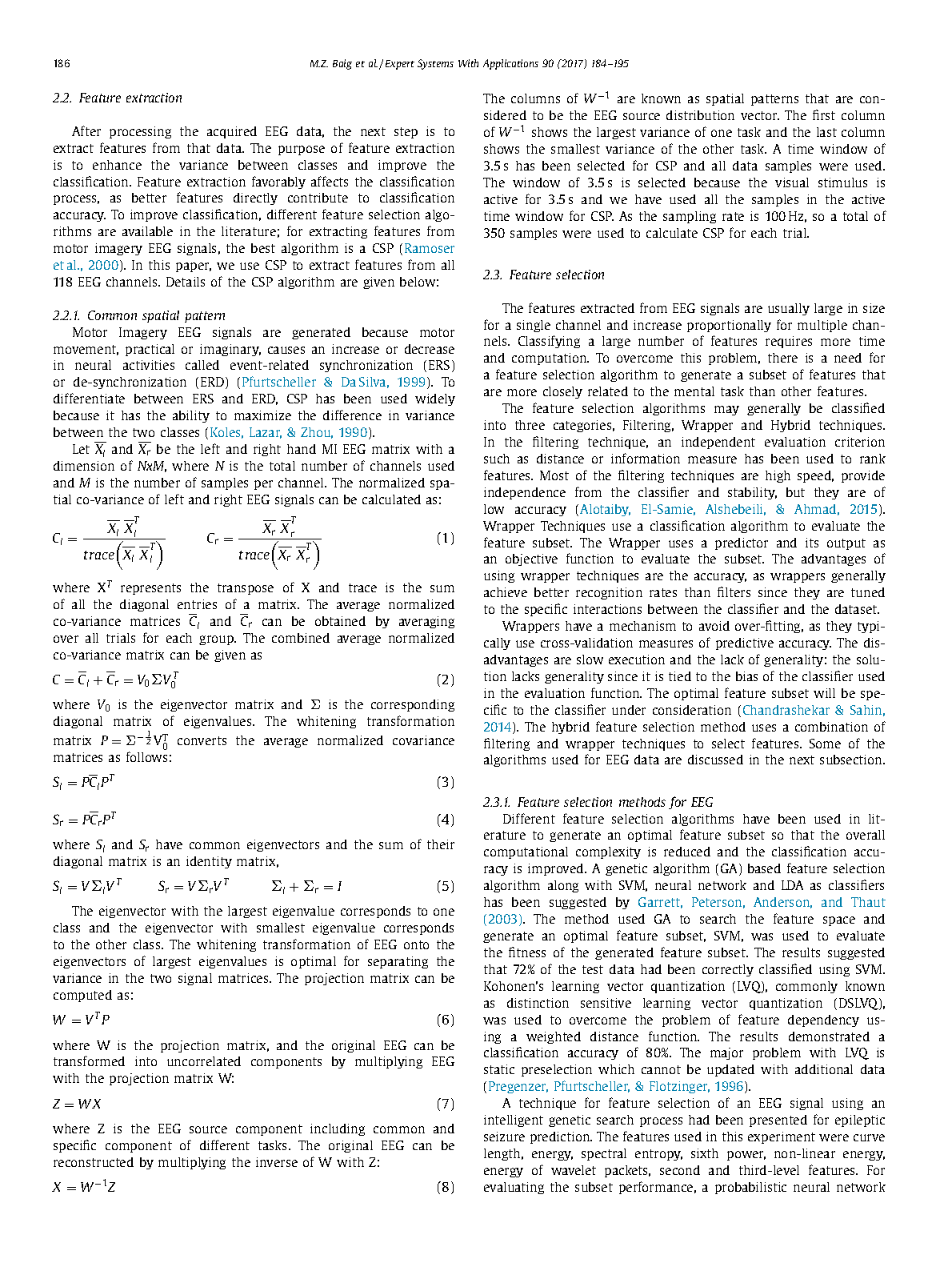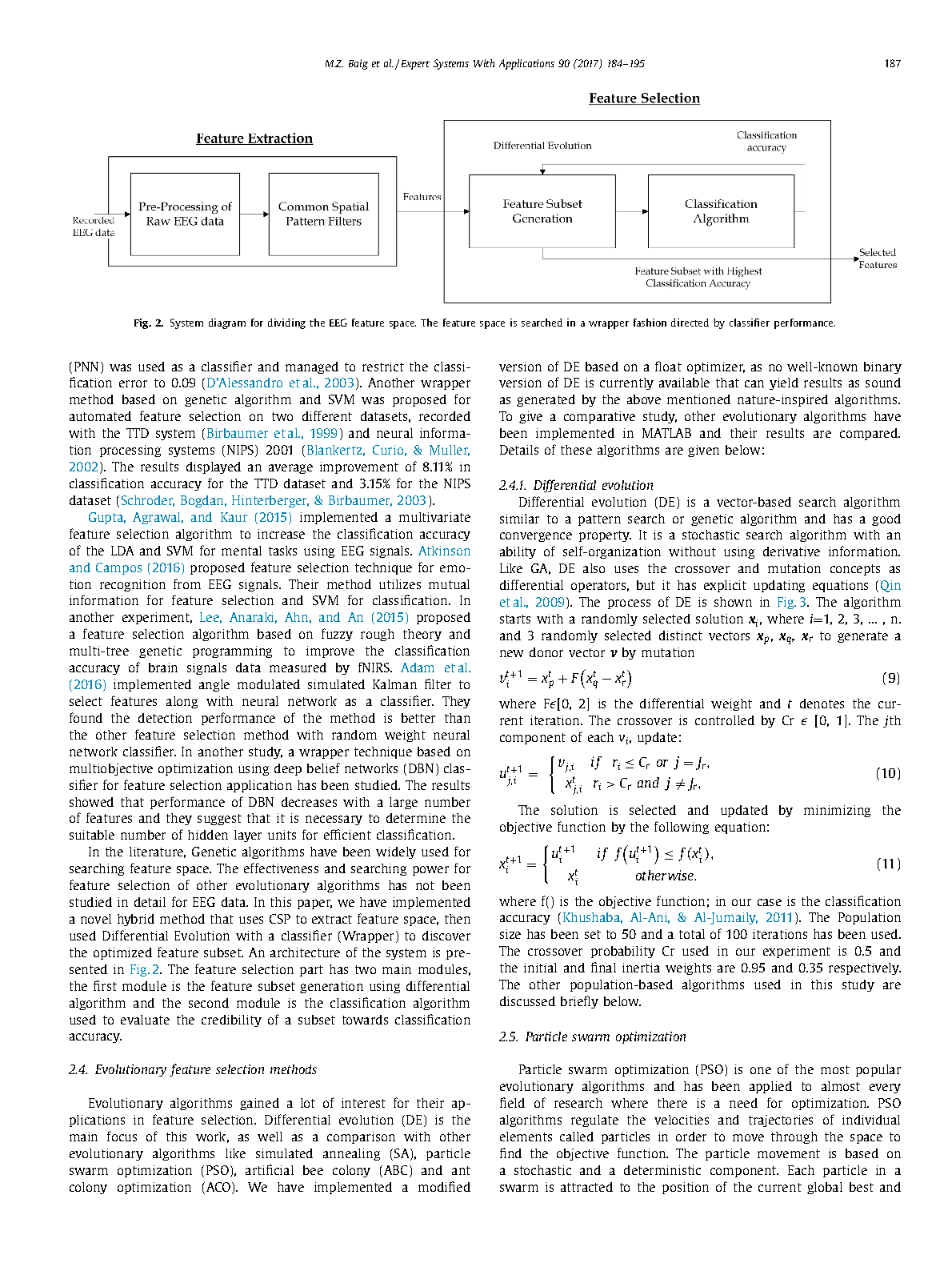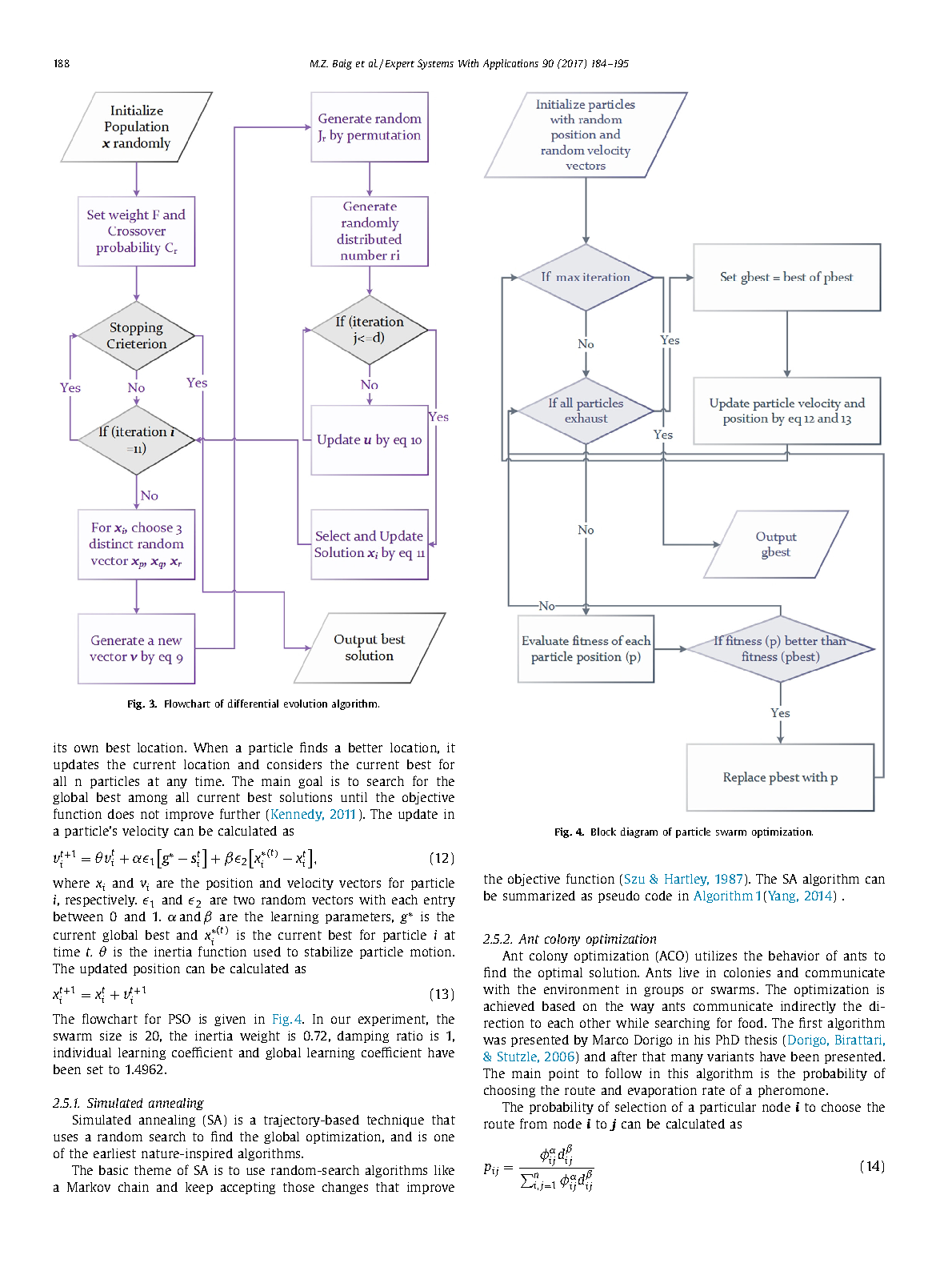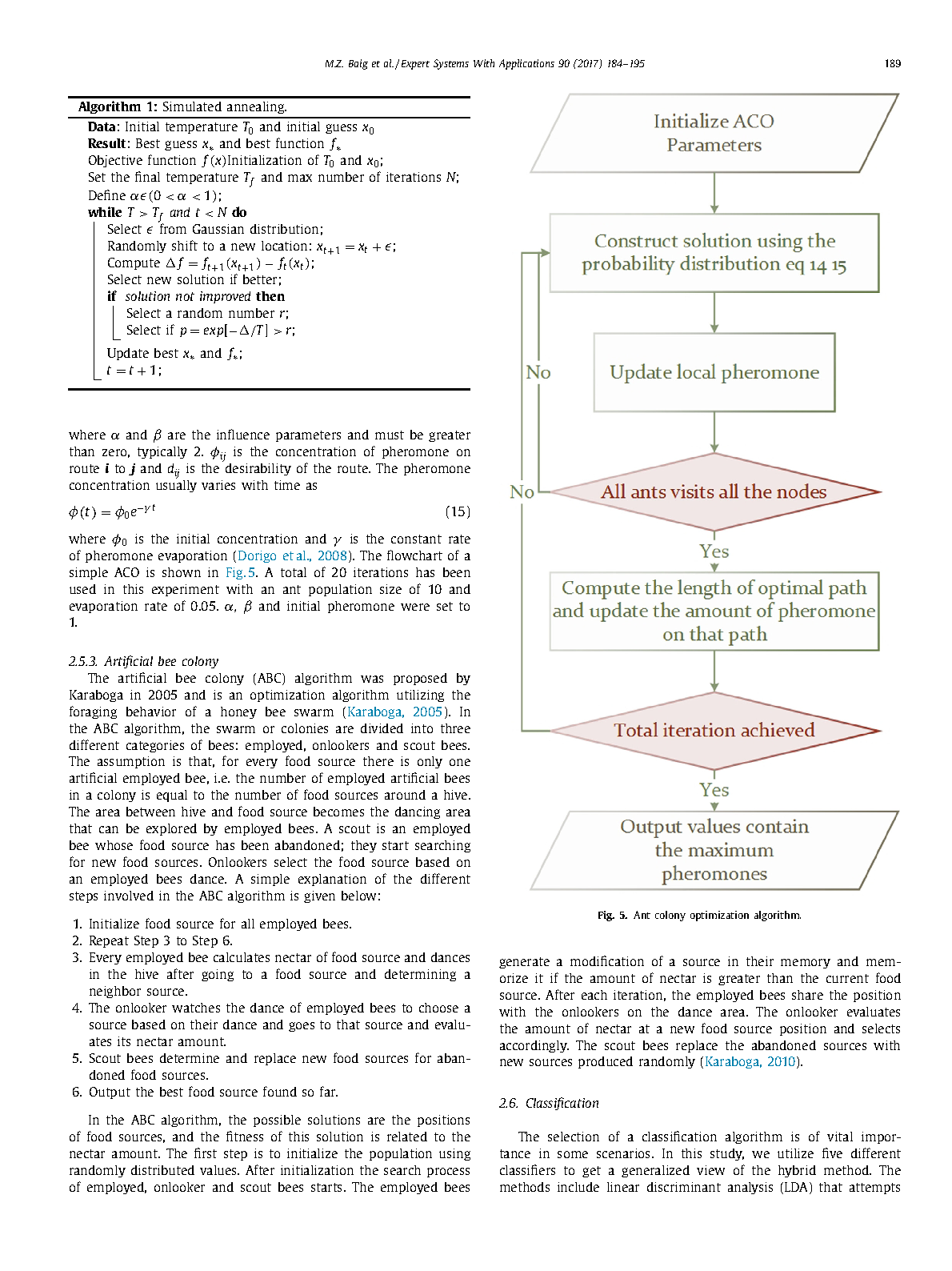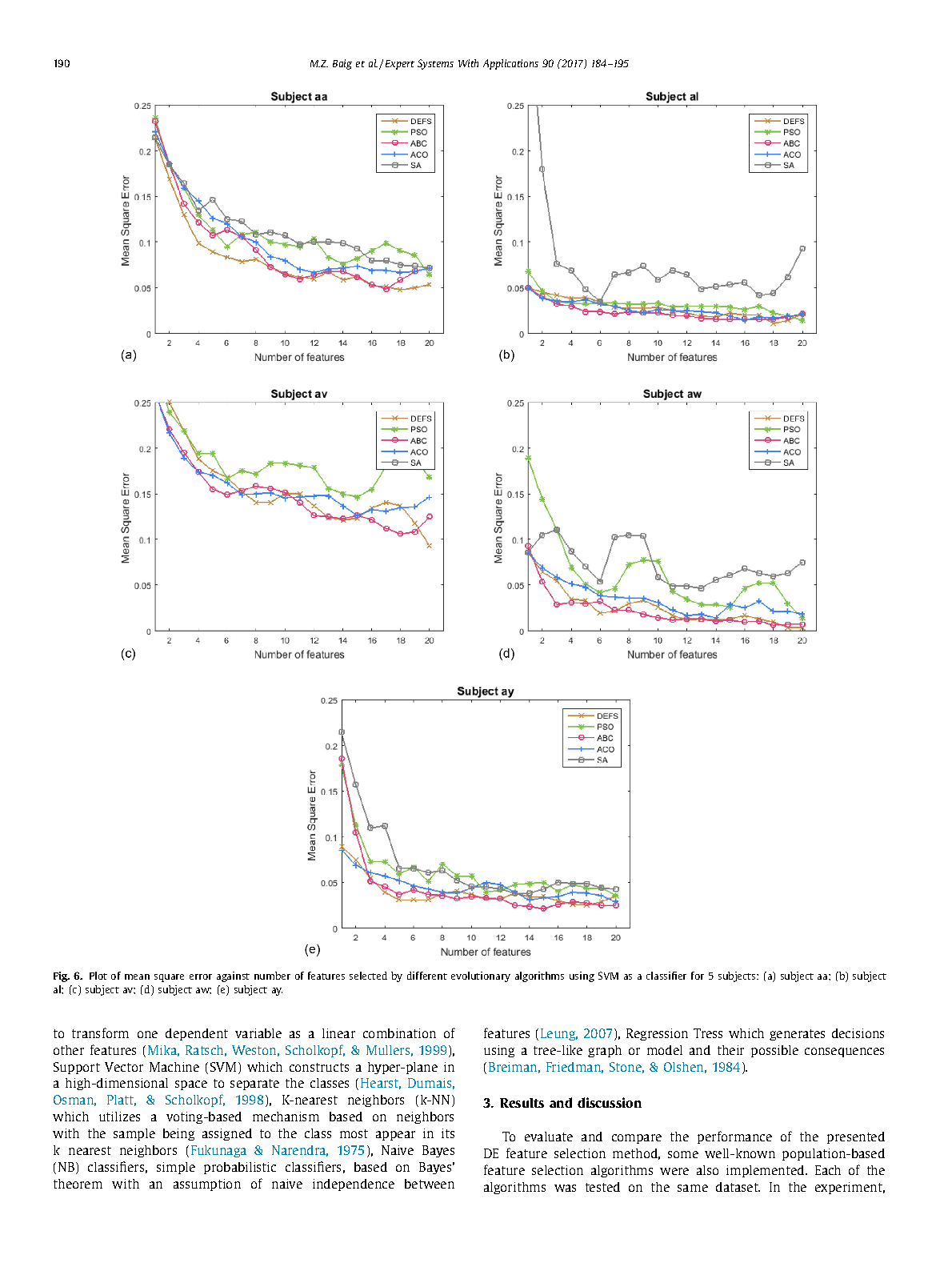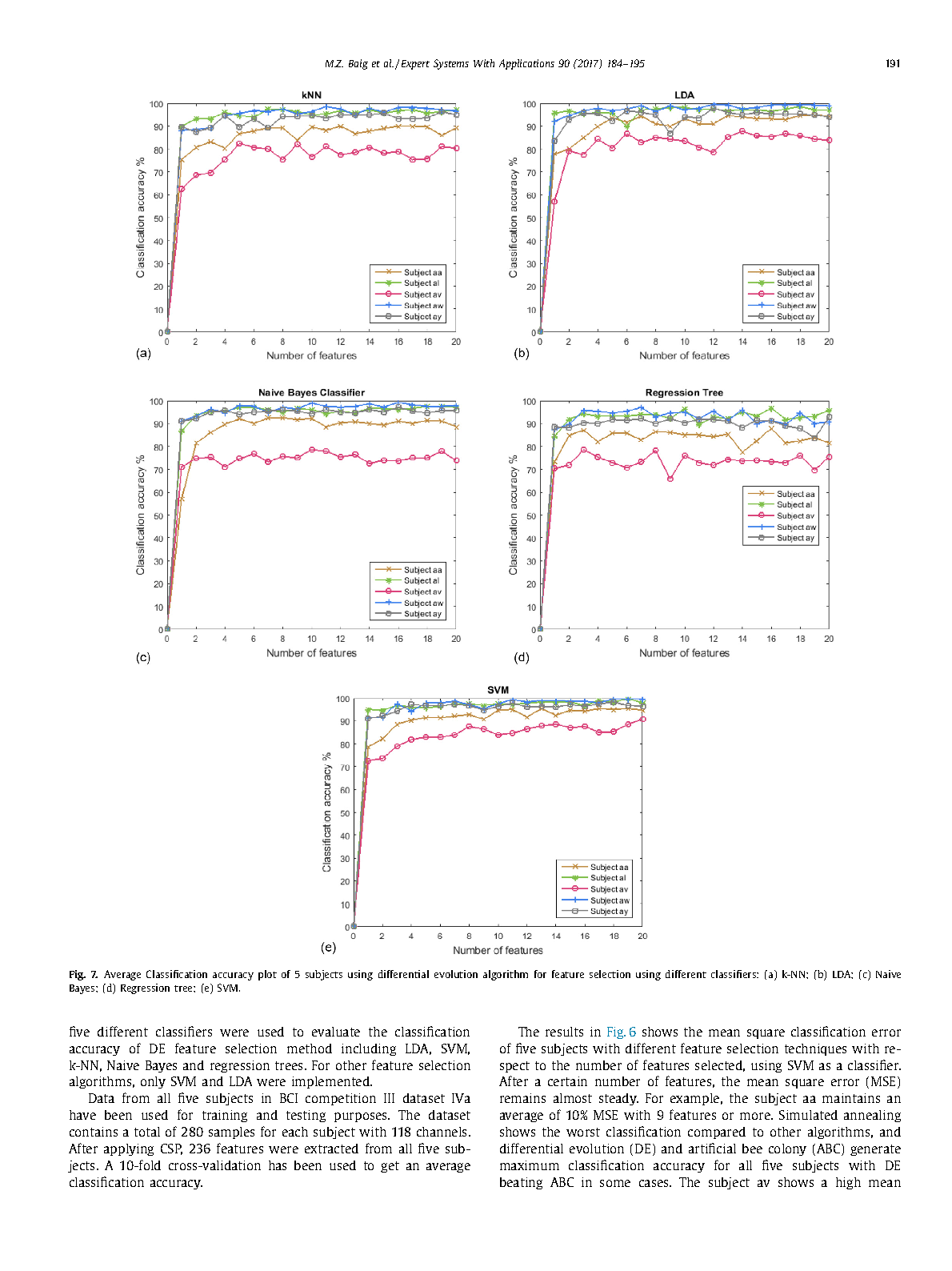Differential Evolution Algorithm as a Tool for Optimal Feature Subset Selection in Motor Imagery EEG
Muhammad Zeeshan Baig, Nauman Aslam, Hubert P. H. Shum and Li Zhang
Expert Systems with Applications (ESWA), 2017
Impact Factor: 7.5† Top 25% Journal in Computer Science, Artificial Intelligence† Citation: 195#

Abstract
One of the challenges in developing a Brain Computer Interface (BCI) is dealing with the high dimensionality of the data when extracting features from EEG signals. Different feature selection algorithms have been proposed to overcome this problem but most of them involve complex transformed features, which require high computation and also result in increasing size of the feature set. In this paper, we present a new hybrid method to select features that involves a Differential Evolution (DE) optimization algorithm for searching the feature space to generate the optimal feature subset, with performance evaluated by a classifier. We provide a comprehensive study of the significance of evolutionary algorithm in selecting the best features for EEG signals. The BCI competition III, dataset IVa has been used to evaluate the method. Experimental results demonstrate that the proposed method performs well with Support Vector Machine (SVM) classifier, with an average classification accuracy of above 95% with a minimum of just 10 features. We also present a comparison of Differential Evolution (DE) with other evolutionary algorithms, and the results show the superiority of DE which implies that, with the selection of a good searching algorithm, a simple Common Spatial Pattern filter features can produce good results.
